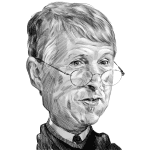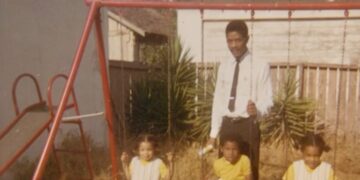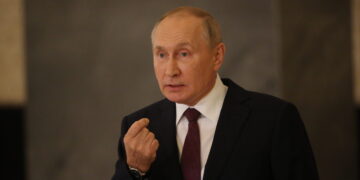A war few believed he could win. VOICE ACTOR: Fire! [music playing] NARRATOR: Now he is on the fifth day of a journey to the city of New York, where he will be sworn in as America’s first president. At each town along the way, banquets and parties are thrown as the new nation celebrates
The great American hero of the revolution. Next up, City Tavern, the city Philadelphia, Pennsylvania. [music playing] Philadelphia, the former rebel capital is a fitting halfway stop on Washington’s journey. 11 years earlier, he faced one of his greatest challenges at a place just outside the city, a place
That even now in 1789 has become an American legend, a place called Valley Forge. [music playing] January 1778, Washington is making winter camp at Valley Forge, Pennsylvania. It has been another long year of fighting, and his men are in desperate need of rest, of resupplying, of retraining.
But building and running a camp a third the size of Philadelphia is a mammoth undertaking. Washington relishes the task, overseeing to the last detail, the layout of the barracks, the placement of roads, the location of defenses. His hands-on approach wins the admiration of his soldiers.
He assures his men that he will share in every hardship and partake in every inconvenience. And for the first month, he lives in a tent at the edge of camp alongside his soldiers. [music playing] Yet for all his efforts, supply shortages become a problem. Washington pleads with Congress for more aid
But to little avail. By February, 2,500 soldiers are dead from disease, more than have been killed in battle since the war began. Thousands of others are stricken with sickness and hunger. Washington will need help to turn this looming disaster around. [music playing] In mid-February, a new recruit arrives
In camp, a foreign officer sent by the Continental Congress to lend badly needed experience to the cause. He calls himself Friedrich Wilhelm Augustus Heinrich Ferdinand Baron von Steuben and wears a bejeweled cross representing an honorary knighthood from Prussia. Curiously, von Steuben carries no papers confirming his supposed achievements.
But Washington is desperate for leadership, for officers with European training. And he puts Von Steuben to work. JOHN HALL: Baron von Steuben is a remarkable figure. Von Steuben’s genius was the ability to distill the complexity of state-of-the-art European drill tactics into a digestible form to this raw material that was the American soldier.
NARRATOR: Under von Steuben’s tutelage, Washington’s ragtag army learns how to form solid, orderly columns, how to properly load and fire a weapon in formation, and the proper use of a bayonet. Von Steuben brings a new level of professionalism to the army. And that, by itself, creates its own sense of belonging.
They’re belonging to something larger than themselves. NARRATOR: Every soldier is taught von Steuben’s techniques, which become the basis of the Army’s first training manual. Once Steuben’s work gives Washington confidence, his army is now ready to meet the British head on. [music playing] With the spring thaw comes news that the British are pulling
Out of Philadelphia and marching overland back to New York City, Britain’s archenemy, France, has recently entered the war. And from his headquarters in Philadelphia, General Henry Clinton, Britain’s new Commanding Officer, fears that an approaching French fleet will blockade New York City. He is determined to protect the city at all costs.
Washington, eager to avenge his loss of Philadelphia the year before, decides to go on the offensive against the British as they cross New Jersey. BRUCE CHADWICK: His army has been trained and turned into a new and hard-fighting army. And that army and its commander are now
Convinced that they can beat any army on the face of the Earth. And they are eager for the fight. And that fight comes on one of the hottest days of the war. [music playing] NARRATOR: June 28, 1778, in a searing heat, the Continental
Army catches up with the British at a New Jersey crossroads called Monmouth Court House. Washington’s second in command on this day is another of his old nemesis, General Charles Lee. Lee is charged with leading the advance force, while Washington forms a second wave of 7,000 soldiers 7 miles behind.
3 hours into the fight, Washington waits near the front line of battle, where he encounters Lee’s soldiers, who appear to be in retreat. Lee was not attacking. What was going on here? In fact, Lee had no battle plan, nothing. He was hopeful of victory somehow.
It’s obvious to all the men at Monmouth that there is no plan. The men retreat. NARRATOR: In a fury, Washington rides ahead and intercepts, generally, himself. WILLARD STERNE RANDALL: Nobody accurately knows what Washington said because it was almost sacrilegious to write down when George Washington swore.
And whatever he called Lee, it was enough for Lee to get the idea and to get out of there. NARRATOR: It is not the first time Lee has ignored Washington’s orders, but it will certainly be the last. Lee retires to the rear in shame. [music playing] Washington now takes charge, ordering his retreating
Soldiers to form ranks, to create a new front line against the fast approaching Redcoats. By the time the British arrive, exhausted from their March in woolen uniforms in the 100-degree heat, they find the Continental Army in a strong defensive position. The winters training at Valley Forge has paid off, and Washington knows it.
He then does something astounding. He rides back and forth in front of his lines to rally the troops, putting himself in the line of fire, risking his life as he asked his own men to risk their lives. The British open up on him and miraculously missing. NARRATOR: The Battle of Monmouth erupts.
More than 20,000 soldiers clash continuously for 5 hours in the brutal heat, longer than any other battle of the war and some of the most intense fighting these men have ever seen. Sunstroke kills as many as musket balls. [music playing] BRUCE CHADWICK: When the smoke had cleared at Monmouth, it was a draw.
Washington knew and the country knew that this new army that had come out of Valley Forge was a good one, that held their own against the British. This renews the public’s spirit for the war and forever solidifies Washington’s position as the unquestioned Commander-in-Chief. [music playing] NARRATOR: 11 years after the Battle of Monmouth,
As his friends in Philadelphia toast his send off to the presidency, that scorching June day stands as the moment Washington’s silenced Charles Lee and all his other critics, the day he climbed back on the road to immortality. [music playing] April 21, 1789, day six of George Washington’s journey
To New York City gets underway. As he leaves Philadelphia, Washington is reminded of the man he personally appointed to run the city, a bold and brave American general he once admired and respected and now despises more than any other man– Benedict Arnold, one of the most troubled and treacherous characters of the revolution.
[music playing] July 1778, City Tavern. Benedict Arnold has recently arrived in Philadelphia to assume his new post as military governor. He will attempt to restore order to the City after nine months of British occupation. Quite well-heeled now, Arnold seems to have forgotten his own troubled background. Though born into a prominent Connecticut family,Arnold’s alcoholic father squandered their fortune, forcing his son to take a lowly apprenticeship as an apothecary. The determined young boy grew to become a successful yet angry man with ambitions of becoming a gentleman and once war broke out, a hero. [music playing] In 1775, it was Arnold who helped lead a daring
Raid on a remote British outpost Fort Ticonderoga. But Arnold’s co-commander on that mission, the wily frontiersmen, Ethan Allen, took complete credit for the capture of the Fort. [music playing] Two years later at Saratoga, Arnold’s battlefield heroics were again usurped by a fellow officer, Horatio Gates. Though it was Arnold who led the fight
And suffered a near-fatal wound, he received no credit for the victory. BRUCE CHADWICK: The people and the press hailed Gates as a new American hero. In fact, the hero of the Battle was Benedict Arnold. NARRATOR: Crippled by the injury from Saratoga, Arnold has relinquished a battlefield command for this new post in Philadelphia.
Determined to make the best of it, he now throws himself into the job, but his actions begin to raise questions. WILLARD STERNE RANDALL: Arnold’s first act was to close all the stores. He said to take an inventory of what there was available. But immediately, the accusations began
To fly that he was cornering the market on goods that he was going to sell himself. I don’t think Benedict Arnold was doing anything that many of the other generals on both sides did as a matter of custom. Well, he was just doing what was common practice at the time,
But he got nailed for it. NARRATOR: Arnold’s questionable business dealings come under fire in the press with charges of corruption and abuse of power. Charges compounded by his choice in women. [music playing] Arnold courts and marries 18-year-old Peggy Shippen, a beautiful young lady from a wealthy family and a suspected loyalist.
WILLARD STERNE RANDALL: She was a gorgeous young woman. She was extremely well educated by her father, could run a business, which appealed to a Yankee merchant like Arnold. Today, they would be considered a dynamite couple. [music playing] NARRATOR: But they are a couple under intense scrutiny. In an overheated political climate,
The cries against Arnold’s actions escalate for nearly a year. They are charges that will have to be answered. March 5, 1779, Benedict Arnold stands in the Continental Congress, called by a special investigative committee to answer the accusations levied against him. In his mind, he is yet again, underappreciated. His honor, unfairly tarnished.
His statement is really a recitation of all that he did and all that he had lost. He’d been crippled for life. He’d been passed over for promotion several times. And he thought he had lost his honor with its lingering cloud over him. NARRATOR: Arnold’s impassioned defense vindicates him
In front of Congress, but the charges just won’t go away. [music playing] Leading the attack against Arnold is Joseph Reed, formerly one of Washington’s trusted officers, now the acting governor for the state of Pennsylvania. Reed threatens to withdraw Pennsylvania support for the war if Washington refuses to take action against Arnold.
And George Washington is forced to weigh in. The Commander-in-Chief wants to give the talented Arnold a well-deserved field command. But he needs Pennsylvania’s support and agrees to issue a written rebuke to Arnold. Once the affair blows over, he can give Arnold the intended promotion. [music playing]
When Arnold receives the ruling from his Commander-in-Chief, the words are stinging– “reprehensible,” “imprudent,” “improper.” For Arnold, it is the final slight. Now in his mind, betrayed, he devises a betrayal of his own. He taps an old friend of Peggy’s from the occupation of Philadelphia, British Major John André,
And offers to surrender a mighty fort to the British in exchange for 20,000 British pounds and a general’s rank in their army. It is a Fort that even bears the general’s name, Fort Arnold, also known as West Point. West Point is a prize the British have coveted
Since the beginning of the war but have never been able to take with a military offensive. Control West Point, and you control the vital Hudson River, severing communication between New England and the rest of the colonies. At West Point, the river remains
Tidal, which is to say it some times the day, it flows south. And in other times of the day, it flows north. This made West Point an ideal place to mount cannons on both sides of the river as ships had to navigate this very tricky curve.
NARRATOR: The British readily agreed to Benedict Arnold’s terms, but Arnold sets his plot in motion. Arnold takes a meeting with his Commander-in-Chief and uses Washington’s desire to give him a field command to his advantage, persuading Washington to instead, give him control of West Point. George Washington was puzzled that Benedict Arnold would want
The command of West Point. Washington wanted to put him back into the line of battle, but Arnold insisted on West Point because that was the deal with the British. NARRATOR: Now in charge of West Point, Arnold prepares detailed information on the Fort and sets a meeting with the enemy. [music playing]
September 21, Benedict Arnold and his British contact, Major John André, come face to face along the banks of the Hudson River. They go over the plans of the Fort and troop movements. [music playing] Arnold’s treason is now complete. WILLARD STERNE RANDALL: I think the biggest misconception
About Arnold’s treason is he did it for the money. I don’t think he did. I don’t think it was as simple as that. He did it for his pride. The money was secondary. NARRATOR: Arnold will now wait for the moment when he and Peggy can slip quietly behind the British lines.
The news is about to arrive that will change everything. André has been captured. And on him are discovered the plans to West Point. Arnold knows it is only a matter of moments before the plot is uncovered, so he flees. [music playing] Just a few miles away, a familiar figure
Is making his way towards a breakfast meeting with a trusted general. When Washington arrives, it is clear something is amiss. Arnold is nowhere to be found, and Washington gets the news. John André has been captured with the plans to West Point. It all adds up to one undeniable conclusion.
One of the great heroes of the revolution has sold out to the British. [music playing] In British-held New York City, there is a new officer in their ranks, Brigadier General Benedict Arnold. His loving wife, Peggy, forced in shame from Philadelphia, now by his side. [music playing]
Arnold’s treason was the highest in the young history of America. It was an act that shook George Washington to the cold, that one of his highest-ranking generals would betray the cause, forever raise the question, who else might be considering the same? [music playing] April 22, 1789, the last two days
Of George Washington’s journey to the American presidency takes him through the countryside of New Jersey, a place of both grave humiliation and great success. It was here that his army retreated from the British in 1776. Here, where he made his greatest reversal of fortune with a surprise attack at Trenton.
But it was the winters at Morristown that proved to be his greatest challenge. [music playing] Morristown, 1780. Washington has just received a dispatch from his Southern Army. They have been forced to surrender. Nearly 5,000 soldiers have fallen to the British at Charleston, South Carolina. His Southern Army is now lost, the South’s
Major port in British hands. [music playing] Outside of Washington’s headquarters, the brutal winter of 1780 is taking a mighty toll on his army. LIBBY HAIGHT O’CONNELL: The winter encampment in Morristown was a lot harder than the encampment in Valley Forge. Valley Forge seems to get all the press,
But Morristown was really dire straits. BRUCE CHADWICK: That was a long winter. It snowed in May. Soldiers are starving. System of furloughs– NARRATOR: Dissension and insubordination grow in the ranks. Some soldiers even threatened mutiny. Washington must step forward and rescue his command from the threat of chaos. [music playing]
Eight nooses, prepared for eight men charged with various offenses– insubordination, forging documents, theft. All are sentenced to death. Washington orders the execution held before the entire camp for all his men to see. It is a carefully choreographed event. Washington wanted to use capital punishment, particularly sparingly.
But he also knew it was great theater. BRUCE CHADWICK: All eight were put on top of the gallows. Their graves had been dug in front of the gallows, and their coffins, which he ordered manufactured, placed next to the graves. [music playing] As they were about to be hung, a soldier
Stepped forward from the crowd. Reprieve, reprieve from the commander-in-chief. Seven of the eight were freed. NARRATOR: This time, just one man will hang for his crimes. But it would not be the end of the problems in Washington’s ranks. [music playing] One year later, it happens again. Mutiny erupts. [music playing]
Now, it appears as if the Continental Army is unraveling. And without the Army, there is no revolution. Washington takes swift and decisive action. [music playing] Leaders of 200 mutineers are condemned to death. And to carry out the task of execution, Washington orders a group of the other mutineers to form the firing squad,
To pull the trigger on their own comrades in arms. It is a psychologically devastating punishment. [music playing] The Morristown Winters of 1780 in 1781 where some of Washington’s darkest days. His army and the cause seem to be coming apart. The war had to come to an end soon, but the question was how?
The answer would come from the southern colonies, where one of Washington’s favorite generals was leading a swift moving fight. [music playing] February 1781, North Carolina. Major General Nathaniel Greene is in the thick of a campaign against British General Charles Cornwallis. Rhode Island’s native son and his force of 1,000
Are traveling light, using guerrilla tactics against the heavily laden British Southern Army. A backwoods game of cat and mouse that wears the Redcoats down. The fights are few but take a heavy toll. The Battle of Guilford Court House in North Carolina costs the British a quarter of their troops.
By the summer, Cornwallis is spent. His weakened army limps into a small Virginia port named Yorktown. [music playing] What happens next has not come before in the war. All the pieces fall into place for Washington, one after the other. The French dispatch a fleet north from the Caribbean. Washington marches his army south,
While British General Henry Clinton chooses to keep his men protecting New York. All roads now lead to Yorktown and an assault on Cornwallis. [music playing] For 11 days, the Americans and French lay siege to the city, tightening the noose around the British army. [music playing] Surrounded, cut off, and unsupported, it
Is only a matter of time until the British supplies run out until they must yield and surrender. For all practical purposes, the war is now over. [music playing] Now, 7 and 1/2 years later, the victorious general who led his nation’s soldiers on the battlefield and two years
Later, it’s politicians through a Constitutional Convention, he’s about to begin the third act of his remarkable revolutionary life. As his coat finally brings him to the outskirts of New York City, George Washington will, in a matter of days, become President Washington. [music playing] April 23, 1789, George Washington
Enters the eighth and final day of his journey across many of the American states. A journey to the city of New York, where he will be sworn in as the country’s first president. If there was ever a question in Washington’s mind of the admiration the young nation has for,
This ride serves as testament to his fame. The newspapers of the era printed George Washington’s route. There was no television at that time. There was no CNN. No radio. But the newspapers were read by everybody. So the entire country knew where he was going and what time.
The highways are filled with people who have ridden days just to see him. They bring their grandchildren, so their grandchildren can tell their grandchildren to tell their grandchildren. They actually saw George Washington, this great national hero. NARRATOR: It is a much deserved hero’s welcome for the former Commander-in-Chief and soon
To be leader of the new nation, a nation that won a war but still has a long road to travel. [music playing] Since 1789, the new United States is an extraordinarily energetic, diverse but also unstable place. It’s a turbulent time in the country. People are apprehensive about the future.
All the soldiers, all the gallant brave young men of the war, 240,000 of them fought in revolution. But there aren’t 240,000 jobs for them. When they go home, a lot of them are unemployed. Politically, the country is a mess. NARRATOR: The very ideals that set the country ablaze
And drove her to revolution, individual liberty, representative government, freedom are no longer just lofty goals. They are being put into practice across the land. People seem to think that democracy means that everybody should govern. Maybe they should not. Pennsylvania has over 400 people in its state legislature.
If you put 12 politicians in a room, it’s hard to get anything done. Put 400 in a room. There is no one man that can hold the country together except him. [music playing] NARRATOR: In defeating the British, America has won her independence. And under Washington’s guidance, she must now become a winning nation.
But the war for independence has left many losers in its wake. Britain has lost her colonies, a crushing blow to the empire. But somewhat surprisingly, it is America’s closest ally, France, that suffers the most. The French are kind of left holding the bag in this conflict. The French aid for the American War
Has generally been estimated at something like $13 billion in today’s dollars. We wouldn’t have had any uniforms. It wouldn’t have had any ammunition without the French. But from the French point of view, they are bankrupted by our war. And of course, it will have disastrous consequences for them.
NARRATOR: France in 1789, bankrupt and weakened, is hit by an even greater wave, as the democratic earthquake that ripped the American colonies for Britain hits France’s shores with a vengeance. Peasants and commoners alike rise up against the monarchy, tearing down centuries of feudal rule. The French people hold their own revolution. [music playing]
Back in the colonies, restoring peace in the wake of a wrenching war, is first and foremost in Washington’s mind. In a war between brothers, where people have been forced to take sides, those who chose to remain with the crown, the loyalists, have to come to grips with their loss.
And many are still on American soil. It does take several years for the loyalists who stay in the newly established United States to be reincorporated as members of the society. But one of the things you don’t see in this country is a massive retaliation against the loyalists.
And that is due to the nature of the American Revolution and to its leadership. [music playing] NARRATOR: This is the country Washington will have to govern, a country in need of peace between loyalists and patriots, a country where many African-Americans, participants in the struggle for national independence
Find themselves still in the bonds of slavery, where American Indians, many who sided with the patriot cause find themselves forced out of the national dialogue. It is a complicated picture indeed. Nobody had created a republic that was this big geographically or contained so many different types of people.
It really through the rules of what a democracy, what a republic could be out the window and said, we’re going to change all of that. [music playing] NARRATOR: The final day of George Washington’s journey nears its end. He makes one final crossing, leaving
New Jersey on a barge that carries him to the city of New York. BRUCE CHADWICK: Alongside his barge is a barge full of continental soldiers. And another barge is a choir of men and women. And he notices that the old standard God Save the King has now been translated into God Save George
Washington. He had considered himself the father of the army. The next logical step to him would be to be the father of this country. NARRATOR: The inauguration of George Washington, the great hero of the revolution is just days away. [music playing] George Washington, the Father of the American Army
Is about to assume a new role as the Father of America, the first president of the United States. It is April 30, 1789, and today, he will be sworn in at New York City’s Federal Hall, the final step in his long journey, a journey no other man has known.
It’s important to remember that the American presidency in this Constitution is a innovation that comes out of this period. No one quite knows what the role is. It’s not a monarch. It’s not a king. It’s something new, so it has to be invented. [music playing] NARRATOR: At Federal Hall, Washington visits the Chamber
Of the newly created Congress. Massachusetts firebrand, John Adams is Vice President at his side. It is a day for celebration, a day for ceremony, and every ceremonial detail must be created from scratch, even how to swear in a president. In the five days prior to the inauguration, Congress had battled back and forth.
Should the President be sworn in inside? Should he be sworn in outside? Everything that Congress did and president-elect Washington did was precedent setting. And they knew that, and he knew that. NARRATOR: In the end, George Washington himself makes the decision. He will be sworn in outside, out among the American people. [music playing]
April 30, 1789, America’s first inauguration. George Washington takes his position on the balcony at Federal Hall. Thousands look on. Months of planning have led to this moment. Though there is one small detail that has been overlooked. In all the planning, they forgot to get a Bible.
At the last minute, somebody runs two blocks to a fraternal organization and borrows their Bible to tell them George Washington is going to be sworn in on it. NARRATOR: With everything now in place, the ceremony begins. [music playing] A revolution that began with self-evident truths
Has given birth to a constitution and a leader to preserve, protect, and defend it. BRUCE CHADWICK: He takes the oath of office. And as he ends it, adding himself in a confident voice says, so help me God. Justice Livingston turns to the crowd and says,
Long live George Washington, the President of the United States. The crowd just roars. [cheering] NARRATOR: George Washington takes his place in history. And although some wanted him to have a grand title, Washington, ever the Virginia gentleman, insists on being called simply Mr. President. [cheering, applause]
CHRISTOPHER BROWN: No one knew if this was going to work. There are observers speculating that, just give them a few years. They’re going to be tearing each other apart. BRUCE CHADWICK: Many people at that time said that the war did not end the revolution. The revolution ends with new democratic government,
This great experiment in the world. Do inauguration of George Washington was not the end of the story. It was just the start of the story. [music playing] NARRATOR: 25,000 gave their lives for liberty. And long after the heroes of the revolution came home, others took their place in history. [music playing]
John Adams, the great firebrand of the revolution, became the second president of the United States. He died, somewhat fittingly, on Independence Day, July 4, 1826, reportedly saying, Thomas Jefferson survives. But that was not the case. Five hours earlier on that same day, Thomas Jefferson, the third president of the United States,
Whose Louisiana purchase doubled the size of America with a single stroke, died at the age of 83 at his home Monticello. [music playing] Benjamin Franklin, the man who delivered the French to the American cause, withdraws from public life in 1788
Due to ill health and dies two years later at the age of 84. 20,000 people attend the funeral of the man who tamed the lightning. [music playing] British Commander-in-Chief Henry Clinton returned to England after the crushing loss at Yorktown, where he received a very cool reception.
He spent the last years of his life compiling his complete memoirs, a vain effort to vindicate himself for losing the war. Britain’s King George III, never able to crush the American rebels, went mad and was deemed mentally unfit to rule for the final decade of his reign. [music playing]
Benedict Arnold, the Connecticut-born Yankee and America’s greatest traitor, landed in London after the war where he failed as a businessman. He died a broken man at the age of 60. Suffering one final slight, Arnold was buried without military honors and a grave mistakenly marked with another man’s name. [music playing]
Friedrich Wilhelm Augustus Heinrich Ferdinand Baron von Steuben, the man who almost single-handedly whipped Washington’s army into shape over the winter at Valley Forge, was rewarded for his efforts with 16,000 acres of land in upper New York state. He died there a bachelor in 1794. [music playing]
Nathaniel Greene, the Rhode Island Quaker and George Washington’s favorite general, never got to see the swearing in of his old commander. He died of sunstroke 1786 while on a plantation in Georgia. [music playing] George Washington served as president of the United States for two terms, refusing to accept a third.
He returned to his beloved Mount Vernon home in 1797, finally leaving his life of service behind him. He died just two years later at the age of 67. In one final act for her ever private husband, Martha Washington burned their personal letters written
Throughout the war, a record of a man and a war, forever lost to time. [music playing] The American Revolution, a colonial rebellion, a revolution of ideas, a revolution between brothers, a revolution for independence. [music playing]






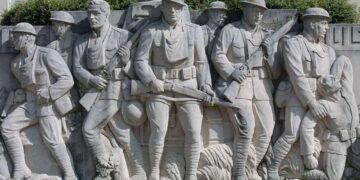
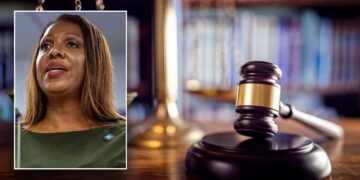

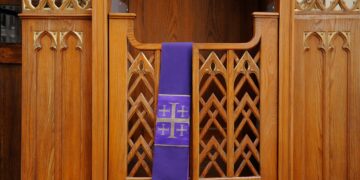






















 Reaction & Commentary
Reaction & Commentary

